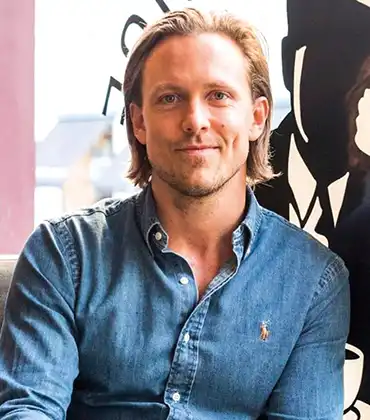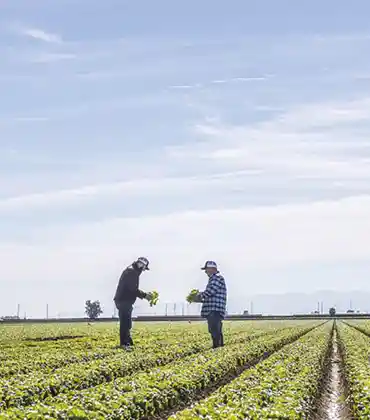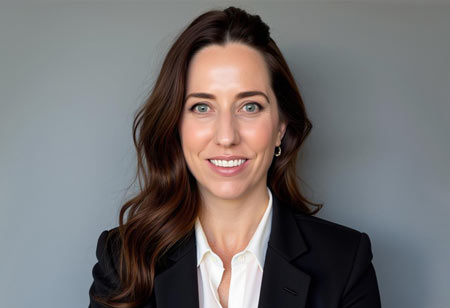THANK YOU FOR SUBSCRIBING
By Violeta Costa, Global Sustainability Manager, GB Foods
Tackling Food Waste: A Global Ethic Imperative
By Kasper Garnell, Brand Director, Joe & The Juice
How Joe & The Juice Are Taking App Ordering To The Next...
By Michael Ciepiela, Director, Food Safety and Quality Assurance, Taylor Farms
No Standard, No Problem -Setting Limits on Processes
By Journee Benson, IT Services Manager, Cargill
Why Restaurants Must Adopt Restaurant Management Software

An Artful Insight into Carlsberg Marston's Sustainable Brewing Odyssey
Laurence COX, Sustainability Manager (UK Lead), Carlsberg Marston’s Brewing Company

 Laurence COX, Sustainability Manager (UK Lead), Carlsberg Marston’s Brewing Company
Laurence COX, Sustainability Manager (UK Lead), Carlsberg Marston’s Brewing CompanyLaurence Cox, a well-regarded professional in sustainability management, over a decade of expertise to the brewing industry at Carlsberg Marston's Brewing Company (CMBC). His career, underpinned by a solid foundation in Environmental Science, has been dedicated to spearheading sustainable practices. Cox's pivotal roles in waste management, regenerative agriculture, and sustainable packaging display his commitment to environmental innovation.
In his interview with Food and Beverages Tech Review Europe, Cox offers valuable insights into the evolving food waste management landscape, including its challenges and emerging methodologies.
To give readers a glimpse into your background, could you share some defining moments in your career that brought you to your current position?
As the Sustainability Manager at CMBC, I spearhead the sustainability strategy for our UK business.
My chief concern is to ensure the successful implementation of our ambitious sustainability strategy, 'Together Towards Zero and Beyond', here in the UK. This involves overseeing projects that sit under our various sustainability commitments, including reducing carbon emissions throughout our value chain, optimizing water use, advocating for regenerative agriculture, innovating packaging, and promoting responsible drinking. Health and safety also play a crucial role, and we have a dedicated team who primarily manages this area.
I have been navigating the challenges and opportunities in the beer industry for just over two years, now. Before joining CMBC, I spent seven years at Salterbaxter, a consultancy specializing in sustainability. There, I had the privilege of developing sustainability strategies, crafting compelling sustainability narratives, and working on ESG reporting for diverse multinational clients. This experience spanned various sectors, from banking to FMCG to fashion. Still, it was in the food and drink sector where my interest deepened, eventually leading me to my current role.
My journey in sustainability began at Futerra, an agency in the sustainability space, where I worked on similar projects. This experience was a springboard for my career, offering invaluable insights into the industry.
My academic background includes a Master's in Sustainability and Business from Nottingham University Business School.
There, I delved into the theoretical frameworks and practical case studies of corporate sustainability, exploring governance and evolving institutional approaches to this critical field.
From your perspective, what are the biggest roadblocks companies face in tackling food waste across their operations and supply chains? How can they overcome these challenges to achieve effective waste prevention?
As a drinks manufacturer, our approach to sustainability, particularly in managing waste, is quite nuanced. While food waste is less of a concern for us than retailers or other food businesses, we still focus intensely on optimizing the use of our key ingredients—water, hops, barley, and other elements that go into our beer.
One of our primary waste products is spent grain, a byproduct of the brewing process. This is a significant part of our process, but it does not go to waste! We have been sending this spent grain to farmers for years as livestock feed, creating a circular economy – it’s a clear and practical use for it.
However, we aren’t content to stop there. We are exploring other potential uses for spent grain, like converting it into biofuel to create biogas for our brewery processes. It is an exciting prospect, though we are still in the exploratory phase.
Another part of our waste management involves spent yeast. For instance, at our breweries in Burton and Northampton, we can sell spent yeast to Unilever for the creation of Marmite. It is a perfect example of a circular story, turning a waste product into something valuable.
Regarding food waste, or more accurately, waste in drinks manufacturing, we also deal with surplus beer from production. Some of this can be reintegrated into another brew, while the rest is discarded responsibly. It is all about finding ways to keep these byproducts in use.
Through your lens as a sustainability leader, which emerging technologies do you see holding the most promise for minimizing CMBC's and the broader F&B industry's environmental footprint over the next decade?
We continually evolve our approach to sustainability, especially in measuring our impact. Since 2019, we have measured our value chain carbon footprint, covering scope one, two, and three emissions. I’ve seen significant advancements in collecting and analysing this data, particularly with AI and big data analytics. These technologies promise more accurate, real-time data about our supply chain, which is vital because some data relies on assumptions when direct data is unavailable.
Take, for example, our barley farming. We source barley from multiple UK farms, and getting precise data for each farm is challenging. But as on-farm measurement tools improve and our engagement with farmers grows, I anticipate a leap in our data quality. This will be crucial as we expand our regenerative agriculture program, introducing techniques like cover cropping and reduced chemical inputs to protect the soils.
Another area where technology will play a key role is packaging. Currently, we rely on national recycling averages to assess our packaging impact.
However, imagine if we could track each packaging item through the supply chain to see exactly where it gets recycled. This granular data would significantly enhance our understanding and management of packaging waste.
I must mention a recent innovation we are proud of – our Snap Pack packaging. Developed in collaboration with KHS, it replaces the old plastic rings with a glue dot solution. This technological breakthrough was first implemented in 2019 and its success in the UK means it is now being further expanded at our Northampton brewery with a new machine installation. It is an exciting development that exemplifies our commitment to innovation and sustainability.
We believe in making a lasting, positive impact on the environment and setting new industry standards.
If you could distil your sustainability expertise into one key takeaway for C-suite leadership, what would it be to help them propel their companies toward environmental progress?
Driving progress within our business at CMBC has been about learning and adapting. I have found a few strategies particularly effective in this regard. First and foremost, alignment on our commitments and ambitions is crucial. It starts with securing a clear commitment from the top of the organisation. Once that is in place, developing detailed roadmaps with team members responsible for delivering these commitments is the next critical step. This approach ensures leadership commitment and collaborative buy-in from those who drive these commitments is in place.
"The key to driving progress in sustainability is a blend of precise internal alignment, effective collaboration, and strategic external partnerships"
In my experience, projects often face delays or lack of funding when either leadership commitment or team collaboration is missing. Another vital aspect is identifying and working with influencers within the business. These are individuals who possess not just the passion but also the expertise needed to deliver on our commitments. These influencers often reside in critical procurement, marketing, and production areas. Understanding who these people are and integrating their knowledge and interest into our sustainability efforts is essential. This integration avoids the pitfall of having a separate team working in isolation and instead fosters a culture of shared responsibility and empowerment across various departments.
Furthermore, recognizing when external expertise is needed has been pivotal. For instance, we collaborate with external farming and grain experts to advance our agricultural commitments. This partnership brings in vital expertise that we might not have in-house but is crucial for our sustainability journey. Working closely with those on the ground in different parts of our value chain has been immensely beneficial.
The key to driving progress in sustainability is a blend of precise internal alignment, effective collaboration, and strategic external partnerships. This approach fosters innovation and sustainability within our operations and sets a precedent for progressive business practices in our industry.
Read Also















